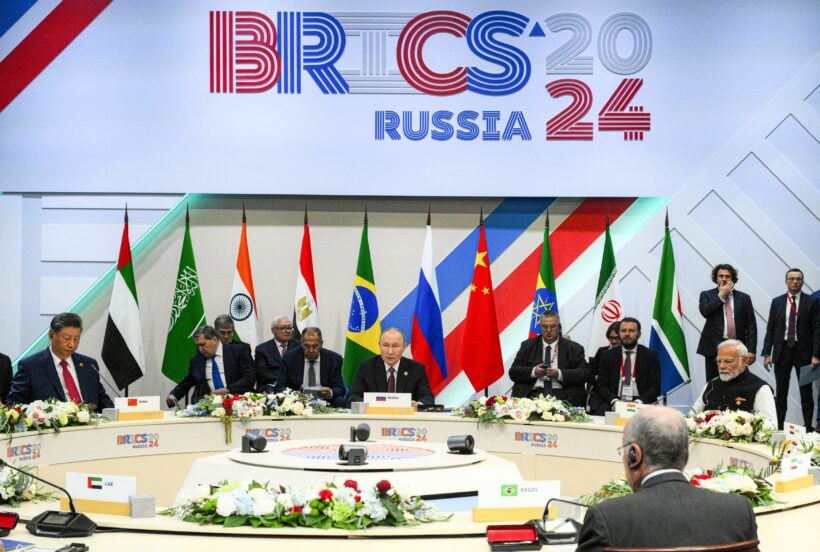
Alexei Danichev | Reuters
MOSCOW, Dec 2 (Reuters) – The Kremlin said on Monday that any U.S. attempt to compel countries to use the dollar would backfireafter U.S. President-elect Donald Trump threatened to impose tariffs on BRICS countries if they created their own currency.
Trump on Saturday demanded that BRICS member countries commit to not creating a new currency or supporting another currency that would replace the United States dollar, saying they would otherwise face 100% tariffs.
The BRIC grouping initially included Brazil, Russia, India and China, but has since expanded to take in other countries. The grouping does not have a common currency, but long-running discussions on the subject have gained some momentum after the West imposed sanctions on Russia over the war in Ukraine.
Asked about Trump’s comments, Kremlin spokesman Dmitry Peskov said the dollar was losing its appeal as a reserve currency for many countries, a trend he said was gathering pace.
“More and more countries are switching to the use of national currencies in their trade and foreign economic activities,” Peskov told reporters.
If Washington resorted to “economic force” to compel countries to use the dollar it would backfire, he predicted.
“If the U.S. uses force, as they say economic force, to compel countries to use the dollar it will further strengthen the trend of switching to national currencies (in international trade),” said Peskov.
“The dollar is beginning to lose its appeal as a reserve currency for a number of countries.”
Dollar dominance — the outsized role of the U.S. dollar in the world economy — has in fact been strengthened of late, thanks to the robust U.S. economy, tighter monetary policy and heightened geopolitical risks, even as economic fragmentation has boosted a push by BRICS countries to shift away from the dollar into other currencies.
A study by the Atlantic Council’s GeoEconomics Center this year showed that the U.S. dollar remains the world’s primary reserve currency, and neither the euro nor the so-called BRICS countries have been able to reduce global reliance on the dollar.
(Reporting by Reuters; Writing by Alexander Marrow/Anastasia Teterevleva; Editing by Andrew Osborn)

